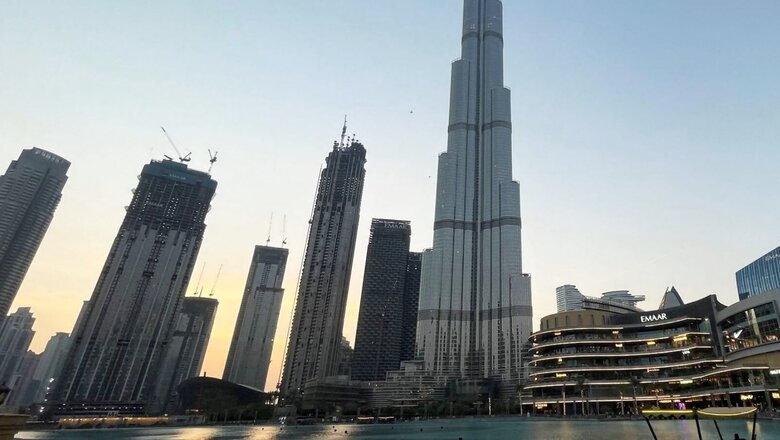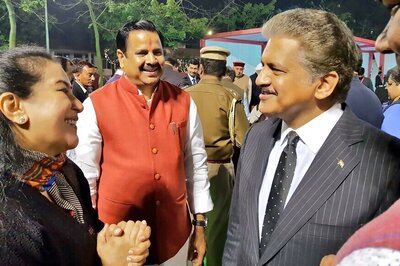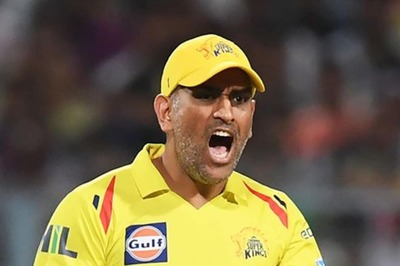
views
The return of the mortal remains of the two Indians who were killed in the alleged drone attack in Abu Dhabi and the Indian crew members who are still in the custody of Houthis on a UAE-flagged ship are perhaps symbolically reflecting India’s own position in West Asia.
The country has been getting caught in the middle of the flux and political churn being witnessed in the region for the past few years.
The two Indians, who died in the attack, were employees of Abu Dhabi National Oil Company (ADNOC). Far from their home, the two were in a foreign land to earn their livelihood. Bearing no relation to the conflict in Yemen, there have been causalities of a fight that was not theirs even remotely.
UAE’s foreign minister Abdullah bin Zayed al Nahyan called external affairs minister S Jaishankar to condole the deaths. In a statement released by the Indian side, it was mentioned that Jaishankar had said in this day and age, such attacks on innocent civilians was completely unacceptable and against all civilised norms. It also said the “EAM (external affairs ministry) conveyed India’s strong solidarity with the UAE in the face of such an attack.”
India has recently stepped up its engagement even further with the UAE. In fact, a grouping to promote trade was announced last year between the UAE, India, the US and Israel. Many referred to it as another Quad, however, none of the four referred to it with that nomenclature, sticking to the line that it was a coming together for enhancing trade and there was no decided format for the four participating countries.
The virtual meeting was held between the foreign ministers of the four countries. The Israel side in its release said, “The ministers decided to establish an international forum for economic cooperation.”
India was also expected to move forward on a trade deal with the UAE during the Prime Minister’s visit to Dubai, which was called off due to the surging Omicron cases across the globe in the beginning of January, 2022.
Meanwhile, seven out of the eleven crew members on the UAE-flagged ship Rwabee, which was seized by the Houthis last week, are Indians. While speaking with News18, India’s ambassador to the UAE Sanjay Sudhir said the seven crew members had been able to talk to their families in India even as the embassy maintained contact with the shipping company for their safe release.
India issued a statement on January 11, saying, “We urge the Houthis to ensure the safety and well-being of the crew members and release them immediately. India is concerned at the recent intensification of fighting in Yemen and hopes that all parties will come to the negotiating table to find a peaceful resolution to the Yemen issue.”
It is to be noted that even though Houthi-backed handles claimed responsibility for the Abu Dhabi attack, saying the UAE will not be safe till it is involved in Yemen, India did not mention Houthis in the external affairs minister’s statement regarding his conversation with his UAE counterpart.
Houthis are Iran-backed rebels who took over the Yemen capital of Sanaa seven years ago plunging the country into a civil war. Saudi forces went in with the aim to oust them and then the UAE joined in in what is called the ‘Coalition Forces’.
India has had an uncomfortable ride with Iran since the slapping of US sanctions against it. India was pressured into severing its oil imports from Iran after the waiver with 7 other countries was revoked by the US in 2019. India brought its oil imports to zero after the May 2, 2019 waiver deadline.
Iran then wrote to India in the middle of the pandemic seeking its support for lifting of sanctions to alleviate the suffering of the common Iranians. However, there was no concrete response from India to the request.
India’s critical investment in Iran’s Chabahar Port to circumvent Pakistan and access Central Asian countries and, more importantly, Afghanistan was only bearing fruit when the apple cart was upset. And soon after 2019, China started making inroads in its engagement with Iran, sensing an opportunity. Both sides even signed a 25-year cooperation agreement where China will invest $400 billion in Iran. Many believe that China will use this deal to further its hold on Chabahar port, something that would be of major concern to India.
As India balances equations between the US and Iran and its new deeper bond with Saudi Arabia and UAE, a critical support base in the Muslim-world for Pakistan, it found itself constantly manoeuvring for diplomatic safety. It finds itself in a tough spot sometimes due to tussles that are not even its own.
Read all the Latest News here



















Comments
0 comment